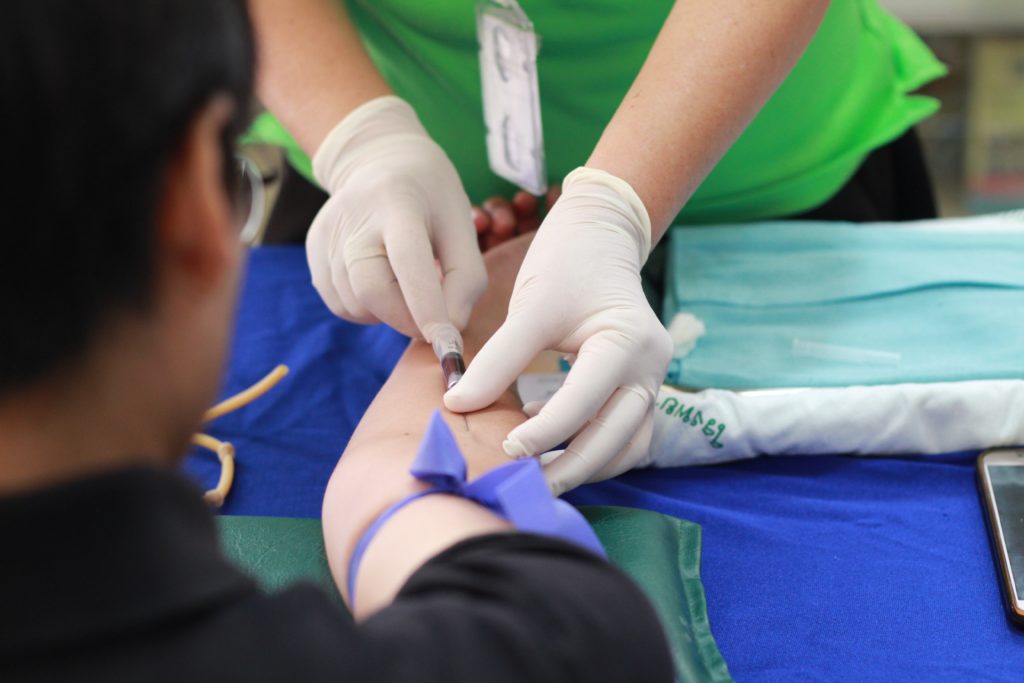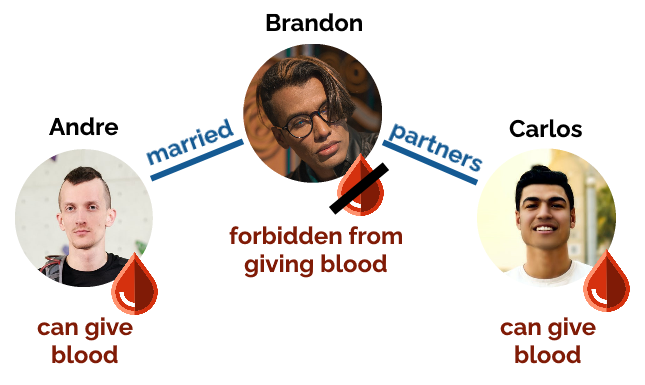So the NHS blood donation rules are changing again. And while they’re certainly getting closer, they’re still not quite hitting the bullseye yet.
That’s great. Prior to 2011 men who’d ever had sex with men, as well as women who’d had sex with such a man within the last 6 months, were banned from donating blood. That rule clearly spun out of the AIDS hysteria of the 1980s and generally entrenched homophobia. It probably did little to protect the recipients of blood, and certainly did a lot to increase the stigma experienced by non-straight men.

The 2011 change permitted donation by men who’d previously had sex with men… so long as they hadn’t done so within the last year. Which opened the doors to donation by a lot of men: e.g. bisexual men who’d been in relationships exclusively with women, gay men who’d been celibate for a period, etc. It still wasn’t great, but it was a step in the right direction.
So when I saw that the rules were changing to better target only risky behaviours, rather than behaviours that are so broad-brush as to target identities, I was initially delighted. Evidence-based medicine, you say? For the win.

But… it’s not all sunshine and rainbows. The new rules prohibit blood donation regardless of gender by people who’ve had sex with more than one person in the last three months.

So if for example if there’s a V-shaped relationship consisting of three men, who only have sex within their thruple… two of them are now allowed to give blood but the third isn’t? (This isn’t a contrived example. I know such a thruple.)
Stranger still: if you swap Brandon in the diagram above for a woman then you get a polycule that’s a lot like mine, but the woman in the middle used to be allowed to give blood… and now can’t! My partner Ruth is in exactly the position: her situation hasn’t changed, but because she’s been in a long-term relationship with exactly two people she’s now not allowed to give blood. Wot?
On the whole, this rule change is an improvement. We’re getting closer to a perfect answer. But it’s amusing to see where the policy misses again and excludes donors who would otherwise be perfectly viable.
Update: as this is attracting a lot of attention I just wanted to remind people that the whole discussion is, of course, a lot
more complicated than can be summarised in a single, short, opinionated blog post. Take a look at the FAIR steering
group’s recommendations and compare to the government’s press release.
Update #2: justifying choice of words – “AIDS hysteria”
refers specifically to the media (and to a lesser extent the policy) reactions to the (very real, very devastating) pandemic. For a while there it was perfectly normal to see (often
misguided, sometimes homophobic) scaremongering news coverage suggesting that everybody was at enormous risk from HIV.
NHS Blood is collecting 66% of the examples you gave and seem happy with that. It seems they are applying the Meat Loaf Metric.
For most of the last decade they’ve accepted 100% of the blood of the adults in our household! From our perspective, this is a step backwards (even if on the whole it’s an improvement). Life is a lemon.
Also: married couples who donate together could be put in an awkward spot: reveal an affair; lie to cover it; or donate anyway?
(my above point assumes a monogamous marriage, and also used marriage as a short-hand for committed relationship)
Erk! Hadn’t even thought of that! Previously they only had to do so if they were a man and had had sex with a man, or if they were a woman and had sex with a man who they knew to have had sex with a man. Now any kind of infidelity counts. Think of the donation room drama! 😋
(Also, you used “relationship” as short-hand for “sexual relationship”. 😁)
I would be outraged but I’m already not allowed to give blood because I fainted one time. It’s just that now “NHS thinks I’m slutty” has been added to “NHS thinks I’m weak”.
I kind of want a badge/t-shirt that says “The NHS thinks I’m weak and slutty”
The new rules should probably be changed to something like: “You must not give blood if you are a person who has had sex, with or without protection, with a new person in the last 3 months.”
Ooh! Specifying a NEW partner would go a long way towards fixing the problem: I really like that suggestion. It still helps limit donations from people who have many new sexual partners in a short space of time but doesn’t cause problems for people in multiple long-term relationships (which are believed to be safer).
I was thinking pretty much this!
While there may be implicit biases contributing to theses policies, I think that even without biases you can get public health policies that exclude low-risk people for the sake of simplifying the questionnaire. It’s a question of whether the number of safe people excluded will be outweighed by the number of risky people who would misinterpret a more detailed questionnaire. Updating the homophobic policies was long overdue, but public health is one area where I think that we should optimize solely for reducing disease transmission even if that results in discriminating against some identities (assuming the policies are well supported by the science).
Sorry to hear you fainted Ruth. As we have a duty of care, we will need to make a note of this on your record. Can you please DM us your full name, DOB, address and contact number? Our referral team may need to contact you. – Shannon
Read more →
It was 15 years ago, I think I’m going to be ok.
Read more →
Who in their right mind would trust personal information to Twitter staff and security?
Read more →